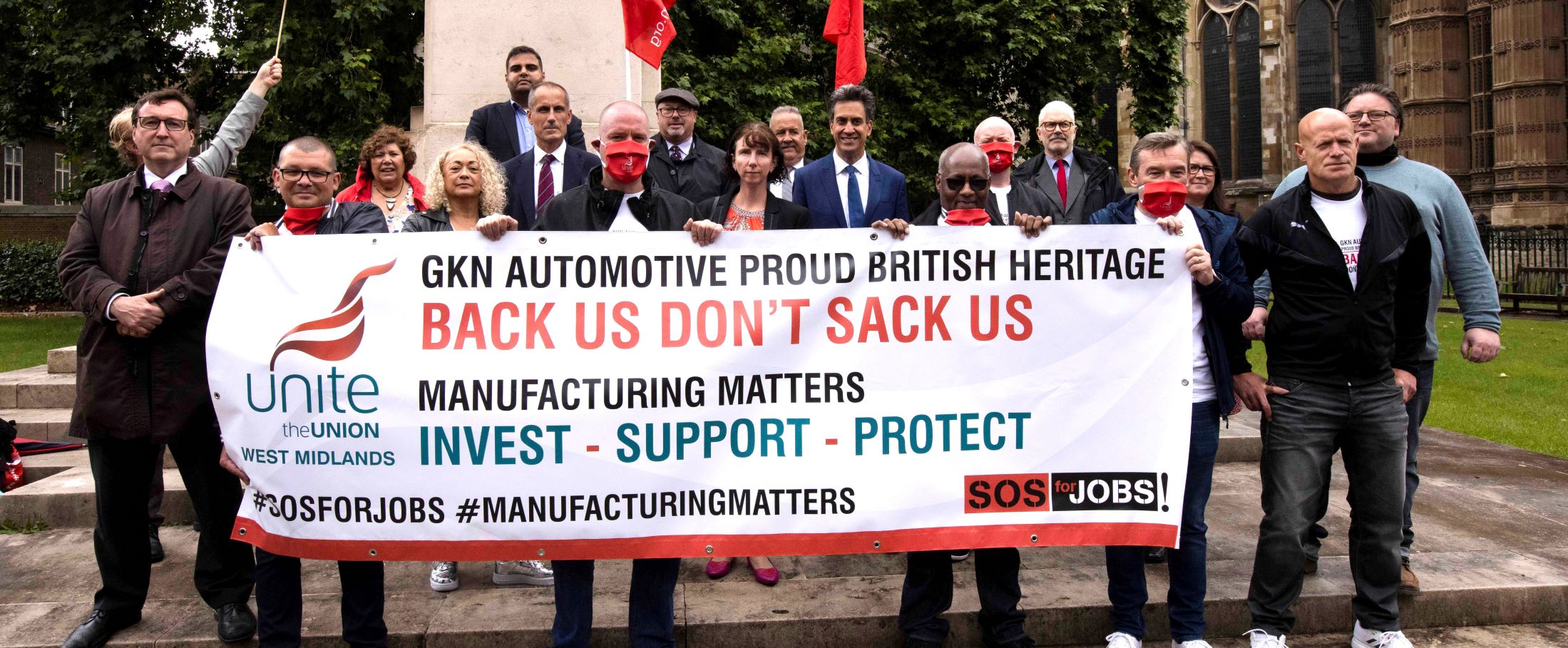Emerging stronger
More than 200 concerned Unite reps and shop stewards gathered at the union’s first Brexit conference yesterday (February 2) to discuss Britain’s upcoming negotiations with the EU.
The North West conference, held in Liverpool, came as the government published its Brexit white paper. The paper reiterated the government’s plan of leaving the single market and the customs union – a red line for the representatives in attendance.
One aerospace industry rep spoke about the need for engaging workforces to help rein in the government.
He said, “Our industry relies on supply chains across the EU. If the Brexit negotiations don’t go right there will be a major impact on jobs – it makes you worry. We need to engage our members in the workplace on Brexit and inform of them of the dangers that are facing us if our voices aren’t heard.”
The aerospace industry is just one of many that would be dealt a severe blow if tariff-free access to the single market isn’t retained and default sector tariffs are imposed.
If negotiators fail to reach an agreement within two years, UK exporters could face costs of ÂŁ5.2bn in tariffs on goods sold to the EU, while EU exporters could face ÂŁ12.9bn in tariffs on goods entering Britain.
In a “hard Brexit” deal, the UK automotive industry would face 10 per cent tariffs on exports to Europe, which were worth more than £10bn in 2015 and made up 49 per cent of all UK car exports. Imports used by the UK car industry would be slapped with a 4 per cent tariff.
The car industry trade body, SMMT, has said such a situation will add ÂŁ1,500 in on-costs for every UK car.
Sectors such as chemicals would also be badly affected – 60 per cent of chemical industry exports from the UK are to the EU and chemicals are the UK’s largest manufacturing exporter.
It is also anticipated that such a Brexit would add up to 30 per cent on the cost of food manufactured in the UK.
Skilled jobs under threat
Speaking at the conference, Unite assistant general secretary Tony Burke said, “Hundreds of thousands of skilled jobs in science, automotives, aerospace, engineering and manufacturing are now under threat. These jobs form the backbone of the UK economy - for every single job in manufacturing, four jobs are supported elsewhere.
“The government does not have a coherent plan and has failed in our view to listen to the voice, not only of workers, but also of manufacturing industry. The EEF, CIA, ADS, UKPIA , the SMMT and the Ceramics Confederation agree with our aims and we are involved in establishing a consensus on the need for the government to listen to the voice of industry and our members.”
Burke was also scornful of Theresa May’s ambitions of offsetting loses incurred through less EU trade by striking deals across the globe. He pointed out that her plans were already being scuppered by Donald Trump on one side and Europe on the other.
In January, Trump scrapped the Trans-Pacific Partnership trade deal between the US and 11 Pacific Rim nations – a move which could result in the EU taking advantage of newly opened markets.
Outflanked
“Germany has already started to outflank us. Last week Merkel said that the EU and Germany could negotiate trade agreements with other countries, including those in the TPP/Pacific Rim countries who are now left high and dry and also with countries such as Australia and China,” Burke said.
“This will effectively lock out the UK - leaving us to pick up anything that Trump throws at us. Having access to the single market and the customs union must be preferable to the ongoing and almost unlimited chaos that we believe we will face in manufacturing if we have a Hard Brexit.”
MobilisationÂ
Unite’s north west regional secretary Mick Whitley said the conference was the start of taking up the task of responding to Brexit and called for the mobilisation of the entire union.
“Our job is to make sure that trade union principles– decent work, guaranteed rights and a strong voice for working people – are at the heart of Post-Brexit Britain.
“If we’re going to achieve that we need to do two things – we need to prepare our members for what is to come, and we must campaign for our own vision, and use it to unite our members,” said Whitley.
“We must go on the offensive and push for our own demands. From the outset, Unite has been clear that the only way to mitigate the impact of Brexit for our members is with an ambitious industrial strategy.
“As trade unionists it is our job to make sure the voice of working people is heard – to make sure that our industries and communities not only weather the coming storm, but emerge stronger from it.”
- Photo by Martin Scanlon
 Like
Like Follow
Follow
